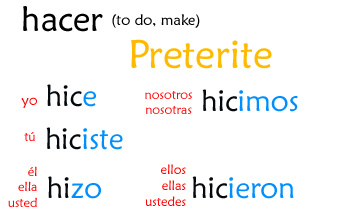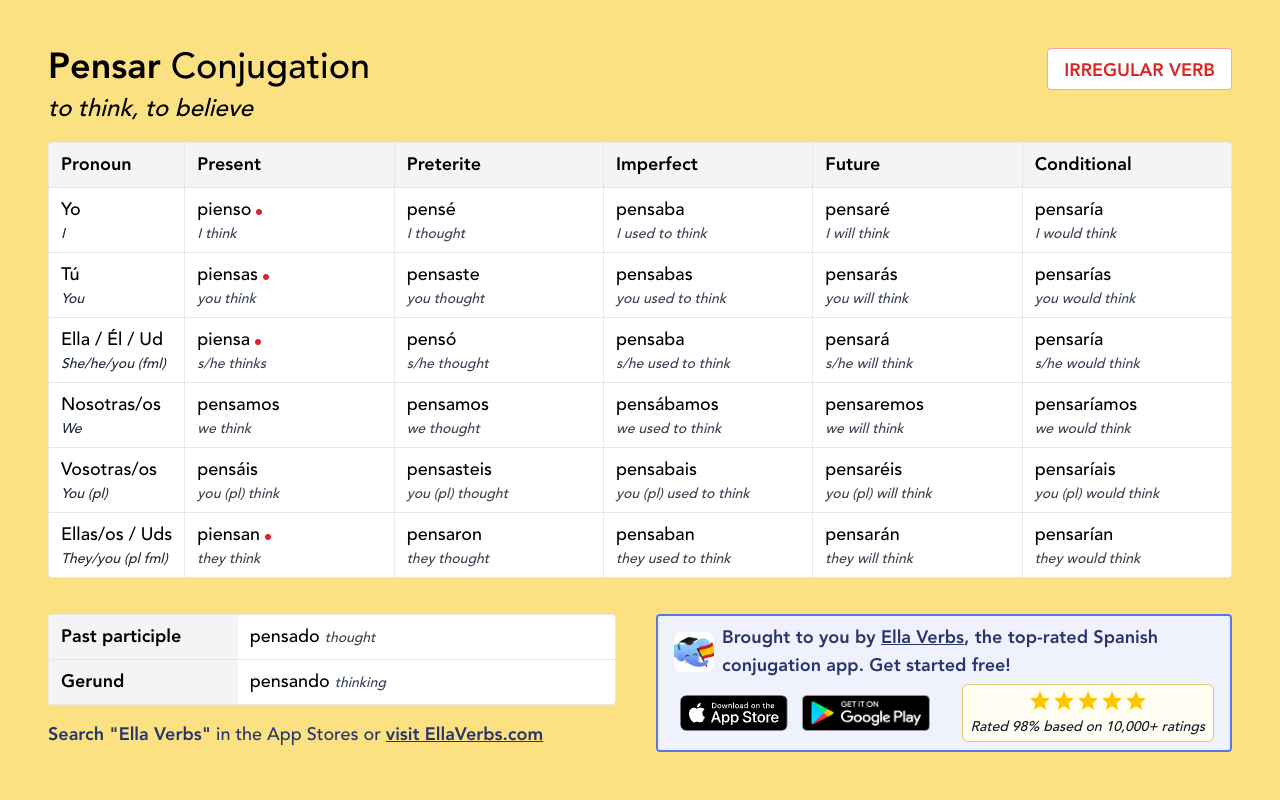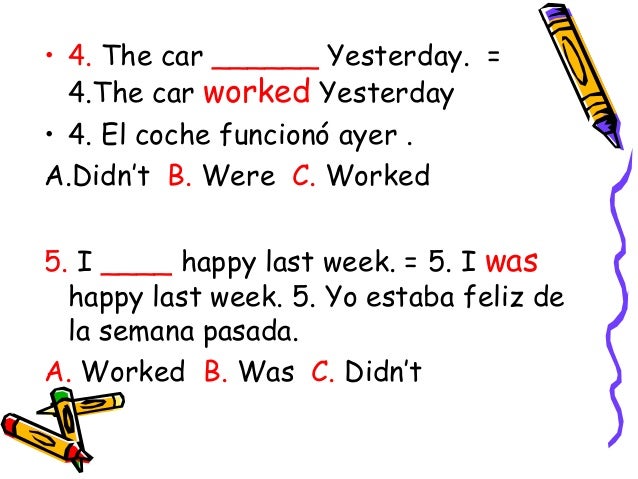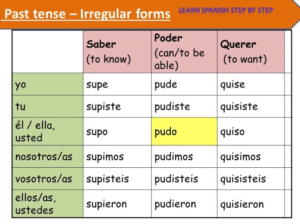

| If you did more exercise, you’d feel better. Si tú hicieras más exercisio, te sentirías mejor.| If I did your job, I would have already resigned. Si yo hiciera tu trabajo, ya habría renunciado.Examples of hacer conjugation in imperfect subjunctive & conditional If you’re not sure when you’d use this verb form, check out Spanish Obsessed’s subjunctive guide. La profesora no permite que ellos hagan ruido.| Whatever my brother does, I’ll always love him the same. Haga lo que haga mi hermano, yo siempre lo amaré igual.| When he does what he promised, I might forgive him. Cuando haga lo que prometió, tal vez lo perdono.SubjectĮxamples of hacer conjugation in present subjunctive If you’ve mastered that first lot and are ready for something a bit more challenging, here are the subjunctive and conditional forms of the hacer conjugation in Spanish. It’s good practice to put it in anyway, while you’re learning, just to be sure there is no confusion! If the context is at all ambiguous, make sure you include a subject in your sentence. Note: You might have noticed that hacía can mean both “I did” and “he/she/it did”. In fact, the past imperfect is the only hacer conjugation that is completely regular. If you’ve already studied up on the regular conjugations in Spanish, you might notice that there is nothing strange about this conjugation at all. | We did everything we could to quit smoking. Hacíamos todo lo que podíamos para dejar de fumar.| The colours of the photo made it truly beautiful. Los colores de la foto la hacía verdaderamente bonita.| I did housework for 8 hours a day for 10 years.


Hacer can also be ditransitive, meaning it can take both a direct and indirect object. This is a transitive verb, which means that it is always followed by a direct object, unless that object is implied. What have you noticed so far about sentences using the verb hacer? While the future tense is usually formed simply by adding the endings to the infinitive form, the future hacer conjugation is formed by taking out the ce from the middle of the word, and then adding those endings. Note that even the future form of hacer is irregular. Sus nietos me harán caso a mí? | Will your grandchildren pay any attention to me?.¿ Haréis la presentación hoy? | Will you do the presentation today?.| I’ll do whatever is necessary in order not to lose my son. Haré lo que sea necesario para no perder a mi hijo.| We did what we thought was right.Įxamples of hacer conjugation in future tense Hicimos lo que pensábamos que iba a ser lo correcto.Examples of hacer conjugation in past preterite tense The present tense is not so hard to remember: almost a regularly conjugated -er ending verb, with the exception of the first person conjugation. | You make me smile with the way you talk. Me haces sonreír con la manera que me hablas.| I do my homework not because I want to but because I have to. Hago mis deberes no porque quiero sino porque necesito.The most common hacer conjugation forms are as follows: SubjectĮxamples of hacer conjugation in present tense
Hacer past tense how to#
| I haven’t done anything wrong but my teacher still doesn’t like me.įor an explanation on this structure, see our article on how to use haber. Participle: hecho (done)Įxample: No he hecho nada malo pero aún así le caigo mal a mi profesor. See more on how to use the gerund in our estar conjugation guide. Gerund: haciendo (doing)Įxample: Julio se está haciendo el enemigo de todos. | My husband is not motivated to do exercise. Infinitive: hacer (to do)Įxample: Mi marido no está motivado a hacer ejercicio. They need to go with another verb which is conjugated in order to be used in a sentence. Verbals are the un-conjugated forms of the verb. Let’s start with looking at the few ways we can use hacer without it being in a conjugated form in a sentence. Check that out if you need any further guidance with the topics of this post! Verbals of hacer Note: If you’re not sure about any of the conjugations and what they mean, we’ve recently posted an in-depth explainer of all the Spanish tenses. And the good news is that as far as Spanish irregular verbs go, this is actually one of the tamer ones. Hacer is an interesting word because it incorporates both the English “make” and “do”, which makes it one of the most used verbs in the Spanish language. Once you understand the hacer conjugation, it all makes perfect sense.

At first glance, this can seem extremely daunting and make Spanish seem like the hardest language ever! But don’t let this scare you off. You might have seen a meme going around that compares “do”, “did”, and “done” in English to Spanish’s seemingly endless number of different forms of their equivalent verb: hacer.


 0 kommentar(er)
0 kommentar(er)
